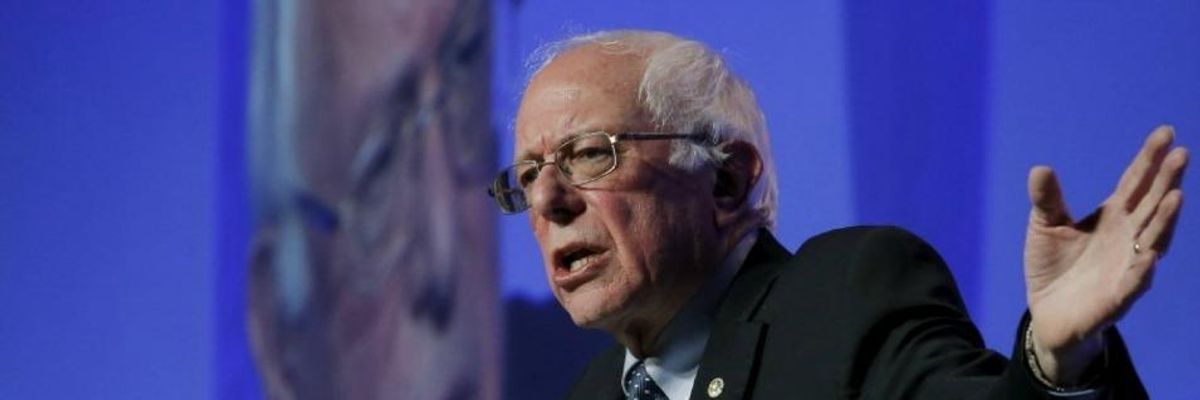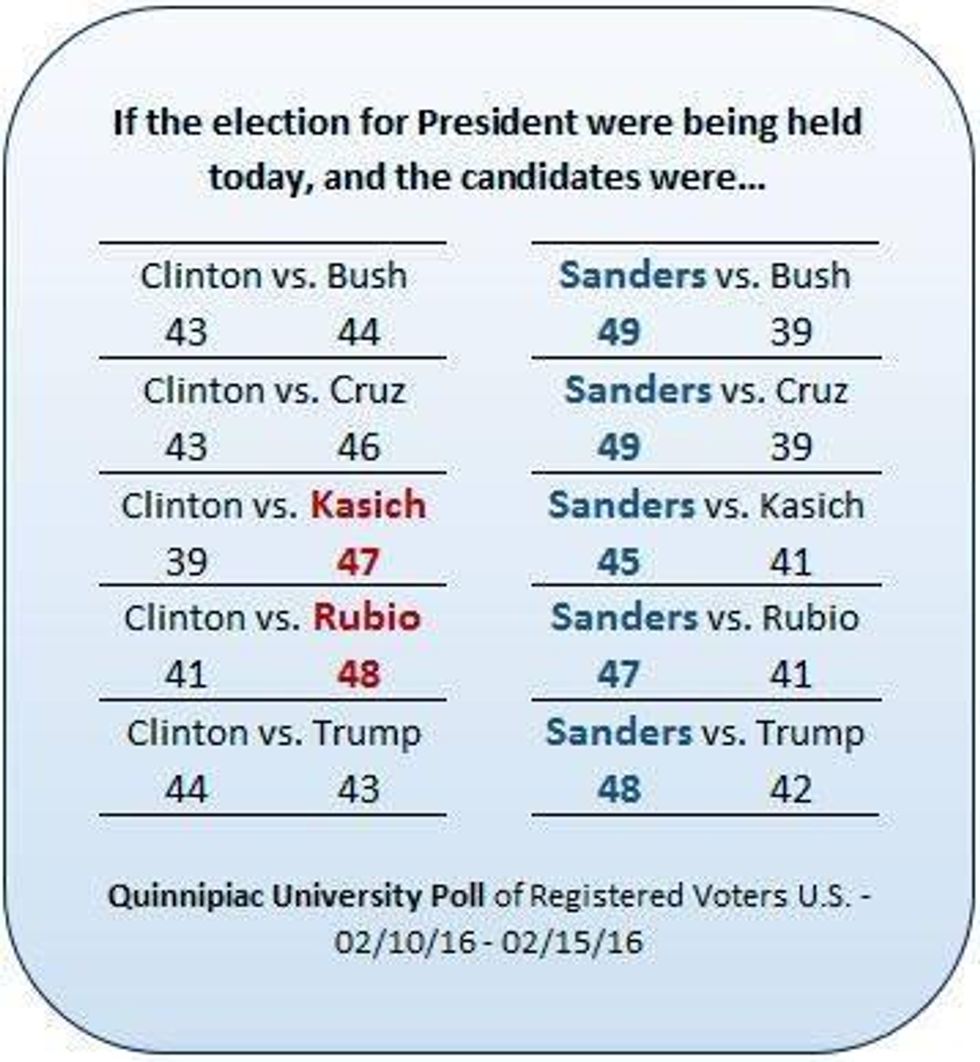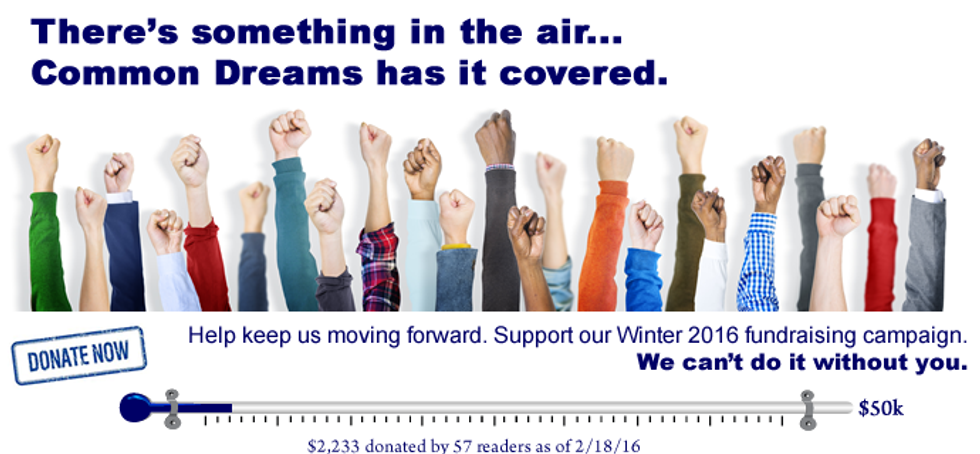A day after a poll showed Bernie Sanders and Hillary Clinton to be in a dead heat nationwide, survey responses revealed that U.S. voters back Sanders over Republican candidates by margins of 4 to 10 percentage points in head-to-head presidential contests.
On the other hand, the found that Clinton merely ties--or in some cases, trails--leading Republicans in the November 2016 election.
When matched against GOP frontrunner Donald Trump, Sanders comes out on top, 48 to 42 percent. Clinton's margin against Trump is a much slimmer 44-43 percent.
"It's certainly Sen. Bernie Sanders' moment," said Tim Malloy, assistant director of the Quinnipiac University Poll. "The Vermont firebrand leads all potential GOP rivals in raw numbers and raw emotion with the best scores for favorability and several key character traits."
For example, when asked whether Sanders "cares about the needs and problems of people like you or not," 61 percent of respondents said Yes. When asked the same question about Clinton, only 42 percent of respondents gave an affirmative answer.
Meanwhile, based on the survey questions, "the candidate running best against Sanders is Ohio Gov. John Kasich," Molloy pointed out, "and he's in fourth place with 6 percent in the Republican presidential pack, unlikely to make it to the main event."
A different poll on Wednesday showed Sanders and Clinton to be neck-and-neck in Nevada, which holds its Democratic caucus on Saturday, while Clinton's lead in South Carolina also appears to be shrinking.
"I don't get it. I don't think anyone expected this race to look like this," one former Clinton aide who maintains ties with the campaign toldThe Hill. "A big loss in New Hampshire, basically a tie going into Nevada. You have to ask yourself, 'What's next?'"
The Hill reported: "Team Clinton maintains confidence that its lead in South Carolina will hold, but the potential loss in Nevada has put people on edge about a possible 'domino effect' in which states could fall one by one to Sanders as the Vermont Independent gains momentum."
In Nevada, wrote Hill reporter Amie Parnes, "[e]ven a near win for Sanders...would be perceived as a moral victory for the Vermont senator. And even a small Clinton victory would satisfy Sanders donors, who will keep fueling the campaign."
The Quinnipiac poll, first publicized Wednesday, surveyed 1,342 registered voters nationwide, between February 10-15, with live interviewers calling land lines and cell phones. The margin of error was +/- 2.7 percentage points.



